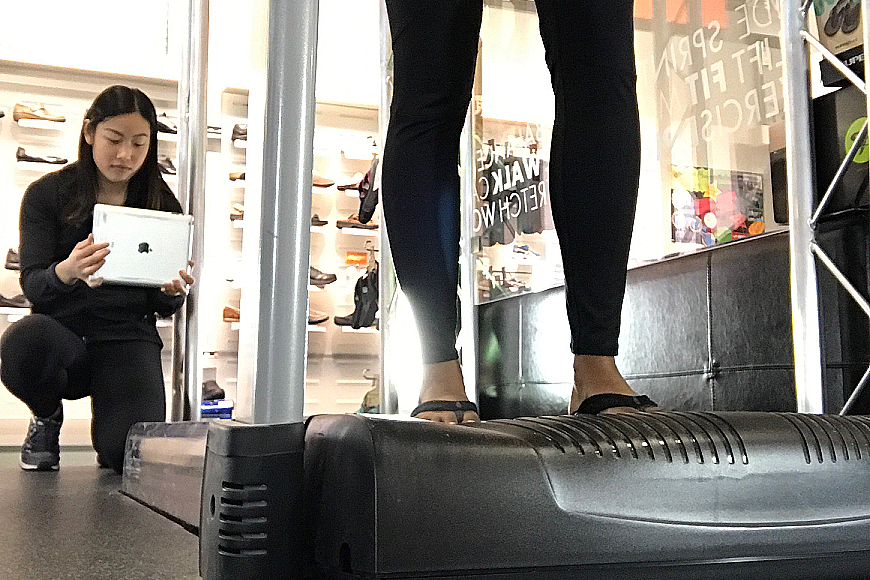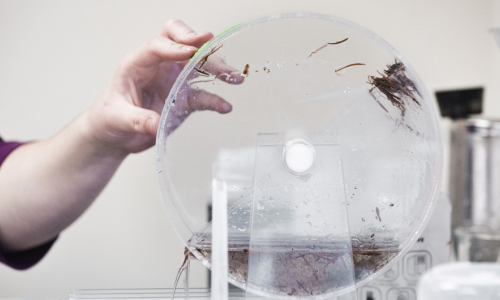
If you’re like me, you may think you have every aspect covered when it comes to applying for co-op jobs—you fix up your resume and cover letter, brush up on your interview skills, and do your research on the company in question. But what about when you finally land that first co-op job? How do you prepare for success? Over the past two terms, I’ve been on my first co-op working as a Pedorthic Assistant at Kintec where I've learned several crucial lessons. This is by no means an official ‘guide’; these are just friendly suggestions, or tips, that I learned during my co-op to help you successfully transition into your first professional co-op position.
1. Acquire Some Business Attire
It's the day before my first co-op interview and I'm panicking. Not because I’m unprepared for the actual interview, but because I can't manage to squeeze into my mother’s size four dress pants. That moment was probably more stressful than the entire application process itself. Let's face it, we're adults applying for professional jobs. You don't want to meet your employer wearing dress pants two sizes too small or a blouse so baggy that it resembles a dress. You want to walk into that interview comfortable and confident. Besides, you're likely going to have to wear business casual attire on more than one occasion—work functions, future interviews, and most likely at work itself. With that said, don’t try to fit into your parents’ clothes! Instead, get some business attire of your own. For ideas, check out this article on “How To Buy Your Professional Wardrobe”!
2. Make Mistakes
Now, I know what you’re probably thinking: WHAT DO YOU MEAN MAKE MISTAKES!? There is such a negative connotation attached to the word mistake that almost all of us forget about the benefit of making mistakes. I'm not talking about the kind of mistakes that will get you fired or jeopardize the company you work for. I mean the type of mistakes that will force you to learn. The type that will show your employer that you tried, failed, but then picked yourself back up again. Now, I can't speak for all employers, but the ones that I have worked for appreciated that I tried rather than not trying at all. You make a mistake, own up to it, learn from it, then do it better and correctly the next time. Failing at something makes you human. Embrace it.
3. Create Discussion
Recently, I participated in a series of case studies as a form of training and development for my position. Each team had to build treatment plans for an individual case. My supervisor used this as an opportunity to teach us more about the world of Pedorthics and to get us discussing the case studies with each other. As we collaborated to create a practical plan, I would discuss methods of treatment and rehabilitation with my co-workers. How did this help me? I engaged myself in discussion and had to use critical thinking skills. By doing this, I also gained knowledge from my peers as we bounced ideas off each other. Why should you create discussion in your workplace? Because applying yourself at work creates an environment conducive to learning, and the more you learn, the better you can perform your job!
4. Be Genuine
This one might seem obvious but when you settle into a new job and begin performing the same routine on a day-to-day basis, it can be easy to get too comfortable at work. Instead of letting your routine get to your head, think of ways to switch it up and challenge yourself. Try tackling a different task, greet your customers differently, or compliment your co-workers. Whatever it is, be real and be genuine. I guarantee that you will brighten someone else’s day as well as improve your own mood and performance on the job.
5. Be Proactive
Being a proactive worker means that you create or control a situation by causing something to happen as opposed to responding to a situation after it has happened.
In any work situation, employers will always be impressed if you’re ahead of the game, whether that be with your paperwork or with creating treatment plans. Furthermore, research has shown that “proactivity is associated with job satisfaction because proactive people tend to create conditions more conducive to personal success at work” (Crant, Li, & Liang, 2010, p. 396). So, do yourself and your employer a favour and be more proactive in the workplace!
Working at Kintec has not only taught me a lot about the world of healthcare, it has surprisingly taught me a lot about the business aspect of healthcare—specifically, how important it is to dress and act professionally. This is particularly important when it comes to engaging with doctors, physiotherapists, and other medical professionals, to facilitate a professional relationship. At Kintec, I was able to make my own mistakes while learning significant lessons from them, reiterating why it is important to not be afraid to make them. As well, Kintec showed me how impactful my ideas can be within the world of healthcare. As the industry continues to advance day by day, I find that creating discussion with the people around me encourages me to apply myself—influencing the workplace in my own, small way. Furthermore, being proactive and being genuine in the workplace, assists you in building character as a worker, a student, and as a person. Each lesson I have learned has undoubtedly helped me set a foundation for success in my future career, and I’m confident these five tips will help you in your first co-op too. Good luck!
References
Crant, J.M., Li, N., Liang, J. (2010). The role of proactive personality in job satisfaction and organizational citizenship Behavior: A relational perspective. Journal of Applied Psychology, 95(2), 395-404. doi: 10.1037/a0018079
Beyond the Blog
-
To learn more about opportunities like Ellen's, check out the SFU's (BPK) Co-op site.













